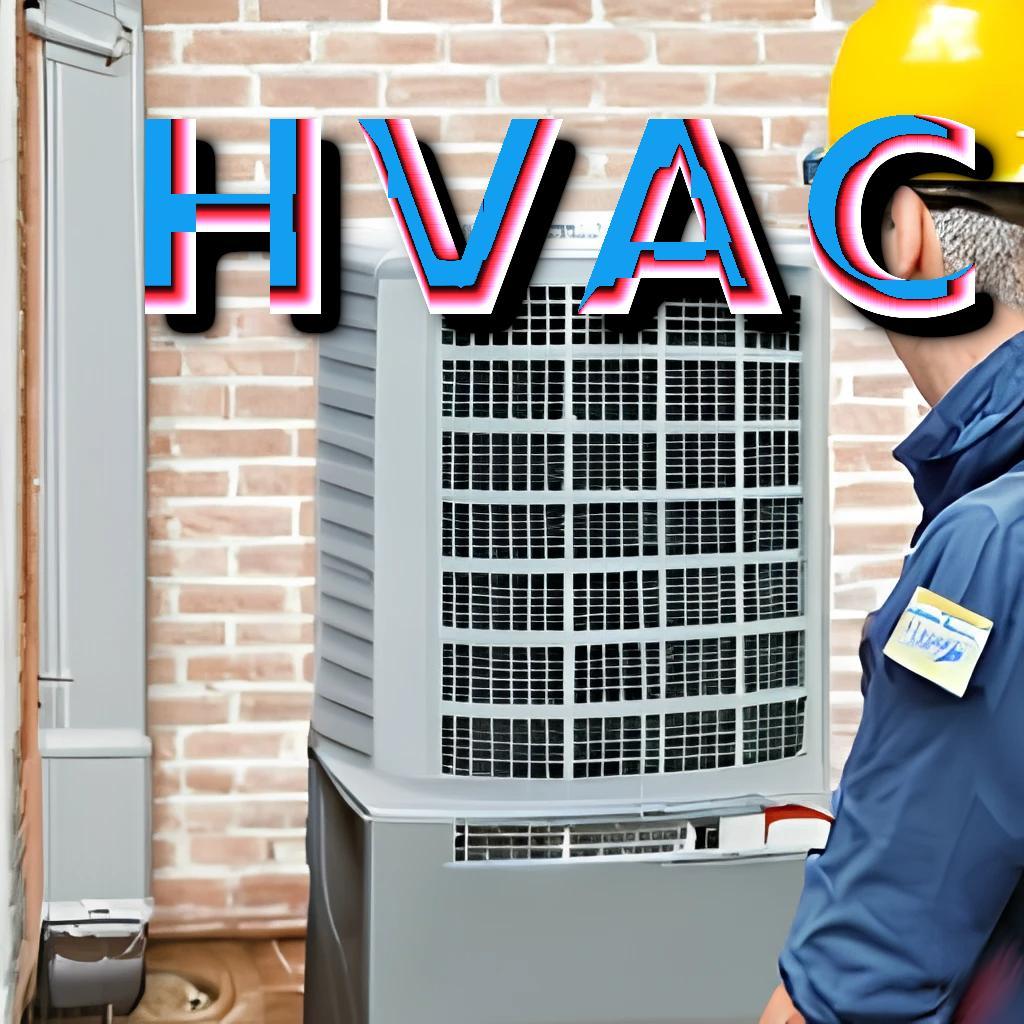


In the intricate dance of home comfort, heating, and air conditioning systems play starring roles. As the guardians of indoor climate, these systems require attention and care to ensure optimal performance. Whether you're preparing for winter warmth or summer coolness, mastering the art of heating and air conditioning can transform your living spaces into havens of comfort. Let's explore some useful tips to navigate the complexities of HVAC systems and keep your home's climate under your control.
Seasonal Servicing: The Key to Longevity
Regular maintenance is the lifeblood of heating and air conditioning systems. Schedule professional servicing at the onset of each season to ensure that your HVAC system is primed for the demands ahead. From cleaning filters to inspecting components, a seasonal checkup not only enhances efficiency but also extends the lifespan of your heating and cooling equipment.
Filter Mastery: The Heart of HVAC Health
Filters are the unsung heroes of HVAC systems. Clean filters ensure optimal airflow, energy efficiency, and indoor air quality. Check and replace filters regularly, especially during peak usage seasons. A clogged filter not only hampers performance but also forces the system to work harder, leading to increased energy consumption and potential breakdowns.
Thermostat Wizardry: Programming for Comfort and Savings
Take command of your indoor climate with a programmable thermostat. Set temperature schedules that align with your daily routines, lowering energy consumption when you're away and adjusting for comfort when you're at home. Smart thermostats, equipped with remote control and learning capabilities, add an extra layer of convenience and efficiency.
Seal the Deal: Weatherproofing for Efficiency
Efficient heating and cooling start with a well-sealed home. Inspect doors and windows for drafts, and seal any gaps or cracks. Proper insulation not only retains conditioned air but also reduces the workload on your HVAC system, leading to energy savings. Consider investing in energy-efficient windows and doors for enhanced climate control.
Ductwork Detective: Ensuring Seamless Airflow
Ductwork is the circulatory system of your HVAC setup. Inspect ducts for leaks, gaps, or damage that may compromise airflow. Sealing and insulating ducts improve system efficiency and prevent conditioned air from escaping. If you notice uneven heating or cooling in different areas of your home, ductwork issues may be the culprit.
Ventilation Vigilance: A Breath of Fresh Air
Proper ventilation is vital for indoor air quality. Ensure that vents and registers are unblocked and clean. Regularly vacuum and dust around vents to prevent debris from entering the system. Consider the installation of air purifiers or UV germicidal lights to enhance indoor air quality, especially if household members suffer from allergies or respiratory conditions.
Energy-Efficient Equipment: Investing in the Future
If it's time to replace your heating or air conditioning system, consider energy-efficient options. High-efficiency HVAC equipment not only lowers utility bills but also reduces environmental impact. Look for systems with the ENERGY STAR label, indicating compliance with stringent energy efficiency standards.
Know When to Call the Pros: Signs of Trouble
While DIY maintenance is beneficial, some issues require professional attention. If you notice unusual sounds, inconsistent heating or cooling, or an increase in energy bills, it's time to call HVAC professionals. Timely intervention can prevent minor issues from escalating into major repairs, ensuring the continued reliability of your heating and air conditioning systems.
Heating and air conditioning services typically include a wide range of installation, maintenance, and repair services for heating, ventilation, and air conditioning (HVAC) systems. Here are some common services provided by HVAC technicians:
Installation of HVAC Systems: HVAC technicians install heating and air conditioning systems in homes and commercial buildings. This can include installing central heating and cooling units, ductwork, thermostats, and other components.
Routine Maintenance: HVAC technicians provide routine maintenance services to keep HVAC systems functioning properly. This can include tasks such as cleaning air filters, checking refrigerant levels, and inspecting system components.
Repairs: HVAC technicians diagnose and repair problems with HVAC systems. This can include fixing leaks, replacing faulty components, and repairing electrical or mechanical issues.
Emergency Services: HVAC technicians are available to provide emergency services when HVAC systems fail or malfunction. This can include after-hours or weekend services to address urgent problems.
Upgrades and Retrofits: HVAC technicians can also perform upgrades and retrofits to improve the efficiency and performance of existing HVAC systems. This can include installing energy-efficient components or replacing outdated equipment.
Indoor Air Quality: HVAC technicians can also help improve indoor air quality by installing air purifiers, humidifiers, and other air quality control systems.
HVAC technicians provide essential services to ensure that homes and commercial buildings have safe, efficient, and reliable heating and air conditioning systems.
Heating and air conditioning services can involve some potential dangers, including:
Electrical Hazards: HVAC systems rely on electricity to function, which means that technicians may be at risk of electrical shocks or electrocution. It's important for HVAC technicians to take proper safety precautions when working with electrical systems and components.
Chemical Exposure: HVAC systems also use refrigerants and other chemicals that can be harmful if they are not handled properly. Technicians may be exposed to these chemicals when installing, repairing, or maintaining HVAC systems.
Carbon Monoxide: HVAC systems that use fossil fuels, such as gas or oil, can produce carbon monoxide, which is a poisonous gas. If an HVAC system is not installed or maintained properly, it can lead to carbon monoxide leaks that can be dangerous or even deadly.
Falls and Injuries: HVAC technicians may need to work at heights or in confined spaces, which can increase the risk of falls or injuries. It's important for technicians to use proper safety equipment and follow safety protocols to prevent accidents.
Fire Hazards: HVAC systems can also be a fire hazard if they are not installed or maintained properly. Poorly maintained systems can overheat or malfunction, which can lead to fires.
The most dangerous aspect of heating and air conditioning services work is the potential for electrical hazards, chemical exposure, and carbon monoxide poisoning. HVAC technicians must be properly trained and take appropriate safety precautions to minimize these risks and ensure their own safety while working on HVAC systems.
Here are some ways to avoid incidents when working on heating and air conditioning systems:
Proper Training: It's important for HVAC technicians to receive proper training before working on HVAC systems. This can include both formal classroom training and on-the-job training to ensure that technicians have the knowledge and skills needed to perform their job safely.
Use Proper Safety Equipment: HVAC technicians should use proper safety equipment, such as gloves, goggles, and hard hats when working on HVAC systems. This can help protect them from potential hazards and reduce the risk of injury.
Follow Safety Protocols: HVAC technicians should follow established safety protocols when working on HVAC systems. This can include following lockout/tag-out procedures when working on electrical systems, using fall protection equipment when working at heights, and wearing appropriate personal protective equipment (PPE) when handling chemicals.
Regular Maintenance: HVAC systems should be regularly maintained to prevent potential hazards. This can include cleaning filters, checking for leaks, and inspecting system components for wear or damage.
Carbon Monoxide Detectors: HVAC technicians should install carbon monoxide detectors in homes and commercial buildings to alert occupants to potential carbon monoxide leaks.
Proper Ventilation: HVAC systems should be properly ventilated to prevent the buildup of harmful chemicals or gases. This can include ensuring that ducts are properly sealed and that ventilation fans are functioning properly.
HVAC technicians can help reduce the risk of incidents and ensure their own safety while working on heating and air conditioning systems.
Choosing the right contractor for air conditioning and heating works providers can be a challenging task, but here are some tips to help you make an informed decision:
Check Credentials: Before hiring an HVAC contractor, check their credentials, including their licenses and certifications. Make sure they are licensed and insured to perform the work in your area, and that they have any necessary certifications to work on specific brands or types of HVAC systems.
Read Reviews: Check online reviews from previous customers to see what their experiences were like with the contractor. Look for reviews that mention the quality of work, customer service, and timeliness of the project.
Get Referrals: Ask friends, family members, or neighbors for referrals to HVAC contractors they have used and trust. Referrals can be a valuable resource in finding a reliable and reputable contractor.
Compare Quotes: Get quotes from at least three different HVAC contractors to compare prices, services, and warranties. Make sure that each quote includes a detailed breakdown of the work to be done and any associated costs.
Ask Questions: Ask the HVAC contractors questions about their experience, the types of HVAC systems they work on, and their approach to customer service. A reputable contractor will be happy to answer any questions you have and provide you with a clear understanding of the work they will perform.
Consider Experience: Look for HVAC contractors who have several years of experience in the industry. Experienced contractors will have a better understanding of the complexities of HVAC systems and will be better equipped to handle any potential challenges that may arise.
There have been several significant innovations in heating and air conditioning services in recent years. Here are a few examples:
Smart Thermostats: Smart thermostats are becoming increasingly popular in the HVAC industry. They allow homeowners to control their heating and cooling systems from anywhere using their smartphones. Many smart thermostats can also learn a homeowner's schedule and preferences and adjust the temperature accordingly.
Variable Refrigerant Flow (VRF) Systems: VRF systems are a type of HVAC system that allows for individual control of the temperature in different zones of a building. This technology can lead to significant energy savings by allowing for more precise temperature control.
Geothermal Heating and Cooling: Geothermal systems use the earth's natural heat to provide heating and cooling. They are highly energy-efficient and environmentally friendly, as they do not produce any emissions.
Ductless Mini-Split Systems: Ductless mini-split systems are becoming increasingly popular as an alternative to traditional ducted heating and cooling systems. They are more energy-efficient and can be installed in homes and buildings where ductwork is not possible or practical.
Air Purification Systems: Air purification systems have become increasingly important in the HVAC industry, particularly in the wake of the COVID-19 pandemic. These systems use advanced filtration and UV-C light to remove airborne pollutants and viruses from indoor air.
Mastering the climate within your home involves a combination of proactive maintenance, energy-conscious practices, and occasional professional assistance. By implementing these tips, you empower yourself to create a comfortable, efficient, and sustainable indoor environment. Your heating and air conditioning systems, when well-tended, become not just appliances but partners in the art of turning your living spaces into a haven of perfect temperature and air quality.
Gratefully yours,

We use cookies
We use cookies and other tracking technologies to improve your browsing experience on our website, to show you personalized content and targeted ads, to analyze our website traffic, and to understand where our visitors are coming from. Privacy Policy.